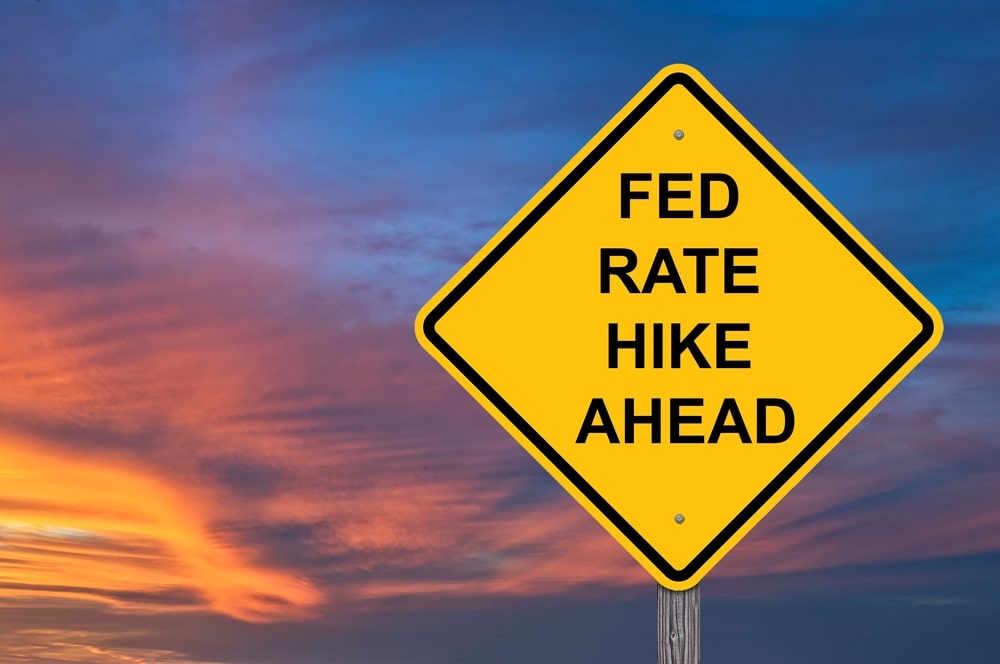Since 2022, the Federal Reserve has been hiking interest rates as it tries to curb inflation. Although high interest rates increase the cost of borrowing, they boost the yields for people holding savings accounts. In this article, we will discuss the Fed rate and its effect on savings accounts.
What is the Fed Rate?
The Fed rate is an interest rate a bank charges another to borrow funds overnight. Banks usually borrow money to fulfill regulatory requirements as well as to prepare themselves to manage any market condition.
📈🤖 Unlock unparalleled trading potential with GPT Stocks Master AI! Revolutionize your portfolio, leveraging real-time insights and predictive analytics. Don’t miss out – step into a world where precision and profitability meet. Ready to transform your trading journey? Click “Master My Trades” now for your exclusive access! ✨🚀📊
So, who sets the Fed rate? The Federal Open Market Committee is responsible for this task. As mentioned earlier, a high Fed rate discourages people from borrowing loans, leading to less spending, which results in reduced prices and inflation.
Moreover, high Fed rates have implications for individuals and institutions that invest in bonds. Here is how: The value of the bonds acquired when Fed rates are low is usually lower than bonds bought when the rates are on the rise. Therefore, if you decide to cash the low-interest bonds before maturity, there is a huge chance you will sell them at a significant loss.
High Fed Rate and Bank Failures
The rising Fed rates have caused some banks to suffer losses in recent months. For example, In March this year, Silicon Valley Bank revealed that it had sold a huge percentage of its bonds at a $1.7 billion loss. The announcement caused panic among the bank’s customers, prompting them to withdraw their deposits, a move that led Silicon Valley Bank to collapse. Two other banks, First Republic Bank and Signature Bank, also failed due to high Fed rates.
Does the Fed Rate Hike Affect FDIC-Insured Savings Accounts?
The US Federal Deposit Insurance Corporation (FDIC) allows depositors of various banks to access their money in case those banks fail. The maximum amount that FDIC insures is $250,000. If the bank you’re holding a savings account with increases interest rate on your account due to a high Fed rate, your balance may cross above the $250,000 mark, making it ineligible for FDIC insurance.
Take Advantage by Opening a High-Yield Account
We all want interest on our deposits. Therefore, every time there is a Fed rate hike, it is important to check whether your bank has adjusted the interest rate on your savings account. If not, check out other banks because not every financial institution modifies their rates. There are those that consistently offer low APR (annual percentage yield) of about 0.01% despite the average APY rate being around 0.41%.
If you wish to earn a higher interest rate, consider opening an online savings account. That’s because they are offered by institutions that don’t manage expensive physical branches, thus passing the savings on to their clients in the form of increased rates. When you open an online savings account, expect an APR rate of about 4%. That means when you deposit, let’s say, $10,000 in the account, you will yield $400 after a year.
On the other hand, if you deposit the same amount in large banks like Bank of America, after 12 months, you will only have a dollar as your yield since most of these banks impose an APR of 0.01%.
Why Deposit Funds in a Savings Account Amid High Inflation?
Inflation has reduced spending power as goods are now very expensive. So why keep money in a savings account amid rising inflation? Well, setting aside a portion of your earnings can help you meet financial emergencies, thus preventing you from borrowing loans, which are costly at the moment due to the high Fed rate.
Moreover, if you have some money you do not need right away, you can open a savings account and lock the funds for a predefined period to earn an interest rate that helps them grow.
Conclusion
It is evident that the Fed rate makes loans costly. However, it opens up a financial opportunity for savings account holders. If you wish to set up such an account, choose banks that offer competitive interest rates.

